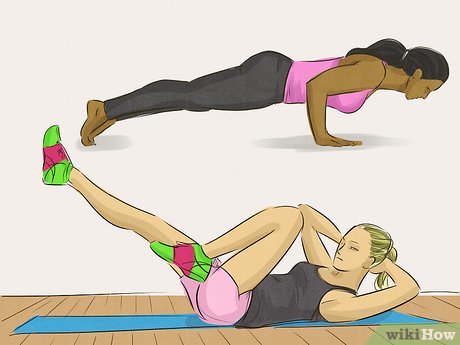
Your imagination only limits the potential earning potential for a personal training career. A career in personal training involves helping clients achieve their fitness goals. There are many different types of clients that a personal trainer may encounter. You can specialize in a specific client type if you have previous experience. In most cases, specialty certifications are available through most certifying organizations.
To become a personal instructor
Are you looking to make a career out of fitness? Although there aren't many requirements, there are some that you must meet. These include being at the minimum 18-years old, and holding a highschool diploma or GED. You can also take advanced certifications.
One of the most important requirements for becoming a personal trainer is good customer service skills. You will need to be able evaluate the fitness needs of your clients and then provide services that match their goals. You should also have good communication skills, as you will be on your feet for long periods of time.

Job duties
Personal trainers have many responsibilities. They can also run personal training sessions, marketing and sales. They must be able manage clients' times and effectively book them. They need to be able to present their services to clients and answer any questions. They need to be able and willing to assist the gym team in marketing and promotions.
Personal trainers are a recognized profession that specializes in the role exercise plays in improving body function. They are able to tailor exercise programs to their clients using their knowledge and expertise, helping them to form healthy long-term habits. They can help clients of all ages, fitness levels, and genders.
Certification
The first step to becoming a personal training professional is to get certified. The American College of Sports Medicine, (ACSM), offers many certifications in this field. These certifications include topics like nutrition, injury prevention, and low-back disorders. The ACSM also offers clinical certifications.
You should not only get your certification but also continue to learn about the industry. It is important that you are up to date on all developments in the field. It is important to be familiar with the various types of workout programs that are available. You can learn more by continuing education, attending workshops at the American Council on Exercise, and attending fitness events.

Outlook for the Job
Personal trainers have a bright future. According to the U.S. Bureau of Labor Statistics, there is a 10 percent increase in demand for fitness trainers. This is faster than the average growth rate for all occupations. The industry offers many opportunities, including management and entrepreneurship.
There are 69,000 openings for fitness trainers per year. Health clubs are constantly looking to provide high-quality services, and personal trainers are a key part of that. Personal trainers make an average of $40,000. However, their pay can vary depending on where the person lives.
FAQ
What happens if I don't get enough sleep?
You can't get enough sleep and your brain will not be able to regulate hormones and chemicals responsible for controlling appetite and metabolism. As a result, you may overeat and gain weight. Sleep deprivation can also lead to excessive weight gain.
Can exercise make me gain weight?
Not at all. Exercising can help you maintain your current weight. Training regularly can help you build muscles, increase your metabolism, and burn more calories. This will mean that your body won't store as many calories.
Why is physical activity important?
For our health, physical fitness is vital. We must exercise regularly to maintain our weight, strength, flexibility, and cardiovascular system. Exercise improves sleep quality, helps with stress management, increases energy and boosts self-esteem.
Statistics
- In high-income countries, 26% of men and 35% of women were insufficiently physically active, as compared to 12% of men and 24% of women in low-income countries. (who.int)
- Physical activity confers the following maternal and fetal health benefits: a decreased risk of pre-eclampsia, gestational hypertension, gestational diabetes (for example, 30% reduction in risk) (who.int)
- One study showed that adults who watch more than 4 hours of television daily had an 80% higher risk of death from cardiovascular disease. (heart.org)
- In 2018, the World Health Assembly agreed on a global target to reduce physical inactivity by 15% by 2030 and align with the Sustainable Development Goals. (who.int)
External Links
How To
How to Stay Fit at 40
This article guides those who want to keep their body healthy and strong even at 40 years old. It includes basic advice on how you can eat right, exercise regularly, get enough sleep, and take good care of your mind. This article will give you tips on living longer and healthier.
-
Eat Right - You should eat right when you want to be healthy. Avoid processed foods and opt instead for whole grains, fruits and vegetables, lean meats and fish, as well as nuts, seeds and beans. Don't be afraid to change your diet if the food you are eating is not what you prefer. Don't starve yourself; this won't help you lose weight. Instead, add small amounts more variety to your daily menu. Try turkey once a week if you usually only eat chicken breast. If you are a fan of pasta, rice is a good option. You can make these foods a regular part of your daily diet.
-
Exercise – Make sure you exercise at least 3x per week. Cardio activities include running, swimming and biking. Get enough sleep. Sleeping for 8 hours per night is recommended. Drink plenty of water throughout the day. Drink 2 liters (0.5 gallon) of water each day.
-
Get enough sleep to stay healthy. According to the National Sleep Foundation, adults require 7-8 hours of sleep daily to maintain optimal physical and emotional health. However, most people average less than 6 hours of sleep per night. If you find that you are constantly tired throughout the day, try making adjustments to your sleeping habits. Adjusting your schedule to go to bed earlier and waking up later will allow you to catch up on extra sleep. You can also turn off your smartphone before you go to sleep so you can relax and wind down. Avoid caffeine after noon to avoid insomnia.
-
Take Care of Your Mental Health. Taking care of yourself is key to maintaining a healthy body. Stressful situations can lead to poor eating habits and unhealthy lifestyle choices. You should practice stress management techniques, such as yoga, meditation, breathing exercises, or relaxation. Try to spend one hour of your free time doing something enjoyable. This could be taking a stroll outside, reading a book or listening to music.
These four tips will help you live longer, and be healthier. These four simple steps will help achieve your fitness goals.